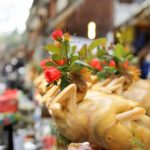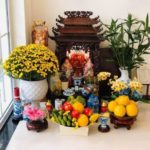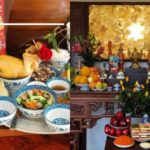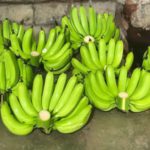Who is Ông Công ông Táo?
According to Vietnamese folklore, Ông Công ông Táo originates from the three deities Thổ công, Thổ địa, and Thổ kỳ of the Chinese Laojiao religion, which later were Vietnamese-ized into the legend of “2 ông 1 bà” – the God of Earth, the God of the House, and the God of the Kitchen. People collectively referred to them as Táo quân or ông Táo.
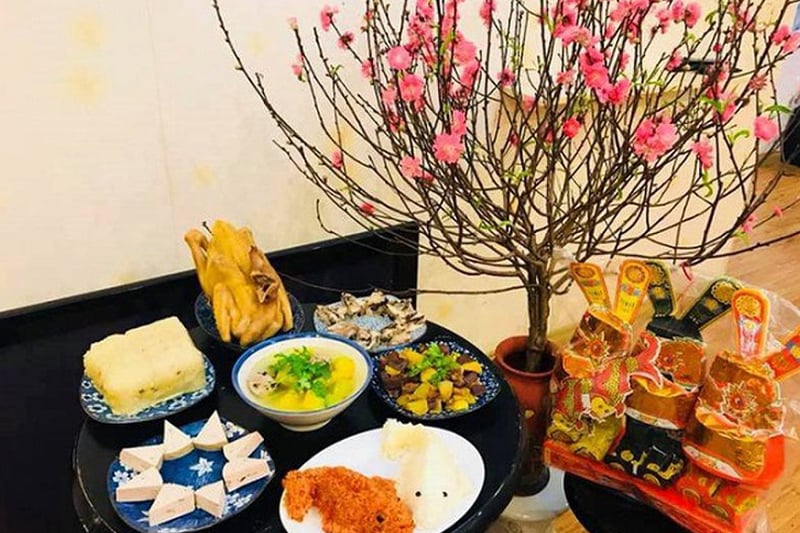
Should we worship Ông Công ông Táo before the 23rd day of the Lunar December?
According to cultural expert Nguyen Duc Hien from the Institute of Vietnamese Cultural Studies, the best time to worship Ông Công ông Táo is during the hour of “Ngọ” (11h – 13h) on the evening of the 22nd and 23rd day of the Lunar December when the gods gather to ascend to heaven. Depending on each family’s circumstances, the worship ceremony may vary. Some families worship in the morning or afternoon of the 23rd day, while others perform the ceremony one day in advance.
However, if there’s no schedule conflicts, the head of the household should complete the worship ceremony of Ông Công ông Táo before 12 noon on the 23rd day of the Lunar December to allow the gods to ascend to heaven on time. In the case of unavoidable circumstances, the family should seek permission and apologize for worshiping in the evening of the 23rd day.
Does worshiping Ông Công ông Táo before the 23rd day have any impact?
The custom of worshiping Ông Công ông Táo has existed for a long time. If your family has unavoidable circumstances preventing you from worshiping on the exact day, is it okay to worship in advance? The answer is no, because worshiping in advance means the gods haven’t been able to ascend to heaven yet. However, worshiping in advance doesn’t have a significant impact on future fortune.
According to feng shui expert Nguyen Trong Tue: “Most people only bid farewell to Ông Công ông Táo on the last day of the year without inviting Táo quân back. In the case of not inviting, the gods will still return to the family, but being invited will show more respect.”
Offerings for the worship of Ông Công ông Táo
1 plate of rice
1 plate of salt
3 bowls of wine
Boiled pork
Boiled or roasted chicken
Stir-fried vegetables
Pickled onions
Red sticky rice
Pork sausage
Mushroom soup
Grilled carp (in Southern Vietnam, they usually worship grilled snakehead fish)
Fresh fruits, tea, wine, betel leaves, …
1 stack of paper money, gold items
1 small vase of chrysanthemum flowers
1 small vase of peach blossoms
Nowadays, the offering tray for Ông Công ông Táo is often simplified. It’s not necessary to have all the dishes like in traditional offering trays, mainly depending on the regional culture, circumstances, economic conditions, and family preferences.
If a family is not able to prepare a full offering tray, they can simply prepare 3 main dishes. Especially, Ông Công ông Táo offering trays in different regions have their own distinctive features.
Additionally, it’s important where the offering tray for Ông Công ông Táo is placed. It should be placed respectfully on the ancestral altar or a separate altar dedicated to Ông Công ông Táo to show genuine sincerity.
Order of worship for Ông Công ông Táo in 2024
Prepare the offering tray and worship items
Light the incense, recite the farewell prayer for Ông Công ông Táo
After setting up the offerings, light more incense and recite the worship prayer. After the incense has burned out, light another week of incense, perform the appreciation ritual, turn the paper money and gold items into ashes, and release the grilled fish into ponds, lakes, rivers, or streams.
Choosing hen for incense lighting. When to choose a rooster and when to choose a hen, many people still don’t know.
In conclusion, the ritual of lighting incense with roosters and hens in Vietnamese culture holds immense symbolic significance. It is a way of communicating with the spiritual realm, seeking blessings, and honoring ancestors. This captivating tradition adds depth and charm to Vietnam’s rich cultural heritage.
























